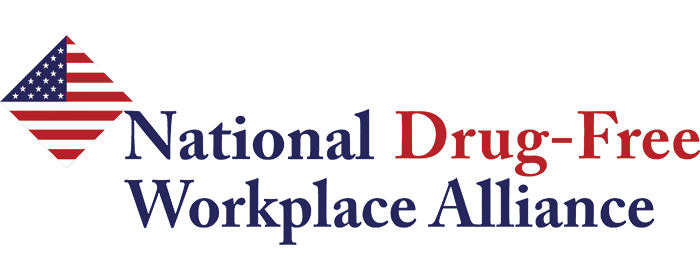The Gazette Op/Ed | March 24, 2015
Two families with deep Colorado roots - the Johnsons of Colorado Springs and the Haseldens of Centennial - have built rival commercial construction companies, each employing hundreds of people and reporting hundreds of millions of dollars in annual revenue. In business, they are practically sworn enemies.
See also: Teen: Colorado voters were duped
But there is at least one issue where the Haseldens and the Johnsons are in agreement and encourage key members of their staffs to collaborate: construction safety. It is of paramount importance, and all of their employees must be drug-free.
See also: Parents, schools say more youths using pot
"I'll get straight to the bottom line," said Rick Reubelt, Haselden Construction's director of environmental health and safety. "If you're in the construction industry, marijuana use is not acceptable at any time, under any circumstance or condition."
"He couldn't have said it better," said Jim Johnson, GE Johnson's chief executive officer. "We endorse that stance, and this is one thing we absolutely unite on."
Company hires out of state
Johnson said his company has encountered so many job candidates who have failed pre-employment drug tests because of their THC use that it is actively recruiting construction workers from other states.
The dwindling candidate pool especially affected GE Johnson during its trumpeted, $57 million renovation of the luxurious Broadmoor hotel's West Tower in late 2013. The company had such a tough time staffing required shifts that Johnson said his team decided to abandon local job-recruitment efforts, pay current workers plenty of overtime wages and look outside Colorado for drug-free employees.
"This is a very troublesome issue for our industry, but I do not see us bending or lowering our hiring standards," Johnson said. "Our workplaces are too dangerous and too dynamic to tolerate drug use. And marijuana? In many ways, this is worse than alcohol. I'm still in shock at how we (Colorado) voted. Everyone was asleep at the wheel."
Since Colorado's 2009 boom in medical marijuana dispensaries and 2012 vote sanctioning the psychoactive drug's recreational use, many of the state's employers have had to confront marijuana's growing impact on their budgets, operations and staffing.
Dr. Jonathan Ritvo is a clinical professor of psychiatry at CU and director of the Center for Dependency, Addiction and Rehabilitation or CeDAR. He discusses functioning addiction and a misunderstanding about marijuana.
So far, the prevailing interpretations of Colorado's state amendments sanctioning marijuana use have sided with the rights of employers to terminate employees who use the drug even if their use is off the clock and premises and/or part of a healthcare regimen.
Marijuana-using workers are challenging those restrictions, claiming their employers have no right to regulate what they do during their free time. Though the U.S. Food and Drug Administration has not approved THC as a safe and effective drug for any condition, employees are using arguments of medical necessity against employers who don't tolerate marijuana use.
Hard to test lingering effect
Legal skirmishes also center on employee drug testing. Marijuana-using workers and lawyers representing the marijuana industry argue that a positive test showing low levels of THC does not meet the burden for proving impairment on the job. Unlike alcohol, marijuana can remain in a user's system for weeks. A heavy user who stops using can test positive for the next 60 days or more.
Therein lies a dilemma for workplace safety professionals like Reubelt. An employee who drinks over the weekend can be sober and safe to work on Monday. In the event of a workplace incident, it is relatively easy to determine whether alcohol was a factor.
Not so with marijuana. If an employee tests positive for low levels of THC, Reubelt said, it is nearly impossible to rule out impairment as a cause.
The company maintains a 100-vehicle fleet that travels the Rocky Mountain region, and Reubelt said he must be able to determine whether drivers are working under the influence.
"I don't think it's right to expect employers to deal with ticking-time-bomb situations like these," Reubelt said. "The science is not available to show exactly how someone is affected by the marijuana they've used . . . marijuana isn't voided from the body like alcohol... ."
Reubelt also worries about employees easily concealing their use of THC. A powerful concentration of the drug can be infused into brownies, cookies, candies and other food products that can be openly consumed without raising a red flag.
Reubelt said it's all a threat to the bottom line. If an employee causes injury or death and then tests positive for THC, he believes the employer will pay.
"It'll be a company owner long before it's an individual employee," he said.
While numbers show marijuana use is on the rise in Colorado, the state has not reported the drug's impact on dynamics important to employers, such as absenteeism, accidents and worker's compensation claims.
However, the number of workers nationwide who tested positive for marijuana jumped 6.2 percent from 2012 to 2013, according to the Quest Diagnostics Drug Testing Index. And the number of positive tests was dramatically higher among workers in Colorado (up 20 percent) and Washington state (up 23 percent). It was the first national spike in positive drug test rates recorded in 10 years - and one attributed largely to the use of marijuana and amphetamines.
Substance-abusing workers are more costly for companies than their drug-free colleagues.
A U.S. Postal Service study found that absenteeism is 66 percent higher among substance-abusing workers. The U.S. Department of Labor cites multiple studies showing higher use of health benefits among substance-abusing employees. It also found lower turnover among companies with substance abuse programs that include drug testing.
Small business especially hurt
Small businesses bear the brunt of workplace drug problems, the Department of Labor reports.
"I see it all the time," said Jo McGuire, a Colorado Springs-based consultant who helps employers promote and maintain drug-free work environments and serves on the national board of the Drug and Alcohol Testing Industry Association.
"Small businesses often feel as if they don't have the money to conduct regular, random drug testing programs, and they're willing to gamble that they won't need them," McGuire said. "But they really do need them because they're losing a lot more productivity and wasting far many more resources than they often realize. And if an accident happens, they're likely to be financially destroyed."
Even without data from the state, Leona Wellener, owner of Front Range Staffing in Colorado Springs, said marijuana use has compromised the state's workforce. In February, Wellener said, more than half the applicants who came to her company looking for work failed the required drug tests because of THC use.
Wellener said she's also seeing more people trying to cheat drug tests by passing off substances that are not their urine. Her firm has started asking people to take drug tests soon after walking in the company's door for the first time.
"I'm not wasting my time and money or my clients' time and money on people who use marijuana," she said. "If you can't pass a drug test right away, then we don't even want to interview you."
Chuck Marting, owner of Fort Morgan-based Colorado Mobile Drug Testing, urges his clients - and all Colorado business owners - to adopt clearly defined rules like Wellener's and apply them consistently.
Doing so, he explained, can preclude charges of discrimination. In the event of a workplace accident, evidence of clearly communicated and consistently enforced drug policies and testing could help employers defend themselves and mitigate financial damages, he said.
Marting also urges employers to avoid the misperception that everyone is using marijuana. He points to the 2013 National Survey on Drug Use and Health, which shows that a minority of American workers report illicit drug use.
"It's obviously not everyone, but those numbers will grow if employers don't set firm limits and stick to them," said Marting, who worked in law enforcement as a drug recognition expert for 17 years.
Marting said employees who do not use drugs urged one of his clients to begin administering drug tests. They were concerned about continual "screw-ups" by stoned co-workers.
"All of this is going to catch up with Colorado - and our country," Marting said.





